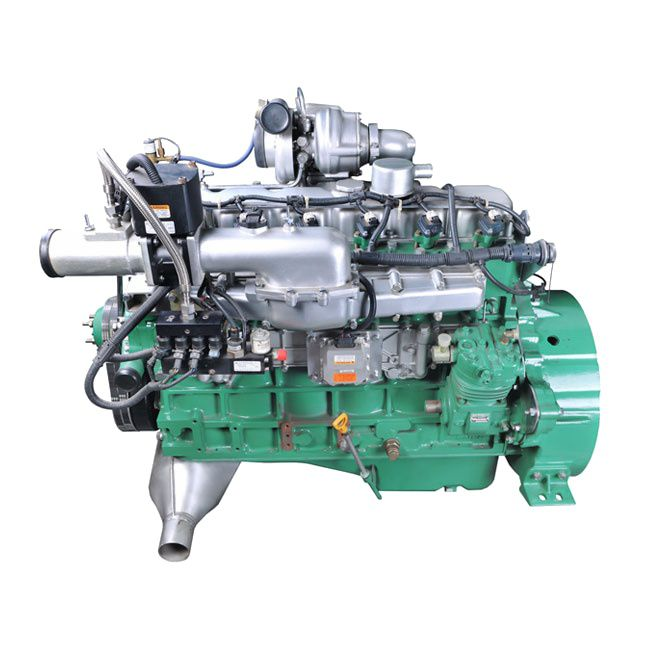10 Factors to Consider When Choosing the Best Engine for a Semi-Truck
1. Type of work
First, as an owner-operator, you need to know what type of work you will be doing, e.g., average load weight
The type of terrain you will be traveling over
The type of trailer you will be pulling
Know the specifications of the rest of the drive line
Know what transmission and rear differential ratios
2. Size considerations
Bigger is better is somewhat of an outdated idea of thinking about the best truck engine.
Bigger horsepower is best, which doesn't sound as true now as it used to.
Depending on the type of work you will be doing, bigger isn't always the best choice for a truck engine. I suspect there used to be more androgyny involved in many engine choices.
Since owner-operators are in business for profit, rather than bragging about their rights at the truck stop counter, the "smaller" engines (13 liters) are much better now than they used to be.
Most of these diesel engines can reliably reach 500 horsepower at 1850 TQ, which is a pretty impressive rating.
These motors are lighter, have less tare weight and impressive fuel economy than their 15/16 liter big brothers.
Remember, horsepower costs money at the time of purchase and throughout the life of the truck.
Most engines can be upgraded to higher horsepower at a later date for better resale.
3. Resale
Owner-operators should also consider the possibility of resale in the future. Nothing makes a truck worth as much as a "pet rock" as the wrong drive line (engine).
4. Drivetrain
Truck manufacturers have their own proprietary drivetrains.
So if you want a Paccar product, but you want a Detroit engine, the days of putting any engine in almost any truck are gone.
With the exception of Volvo, Cummins is the only motor available in almost any chassis style. A few years ago this was an option, but no longer so.
All chassis manufacturers have their own brand of semi-truck engines to choose from, so once you choose a truck manufacturer, your engine choice becomes much easier.
Each truck manufacturer offers their own brand of small block and big block options. Horsepower is similar to TQ specifications.
5. Engine Costs - Short and Long Term
Since the small owner operator business is primarily focused on profit, cost is critical. The cost of a truck engine is the most immediate short-term cost.
Some manufacturers offer special discounts for drivetrain combinations, such as specific engine models with specific transmissions and rear differentials, especially if it is their own brand.
Sometimes manufacturers will offer cash discounts or free extended warranties.
The long-term cost of an engine includes
Fuel economy
Oil change intervals
Oil change costs
Overhead set frequency and cost
Extended warranty costs
All of these costs may vary from manufacturer to manufacturer.
6. Truck engine repair and dealer network availability
Truck manufacturers are learning from the automotive industry that it is virtually impossible to perform any type of engine repair anywhere but at the OEM plant.
Cummins still offers repair services independent of the chassis supplier, as does Caterpillar, but unless you are building a glider, you will not choose that engine.
Therefore, as a new buyer, the dealer network and your relationship with the dealer may become a more important factor than the truck brand when choosing an engine.
7. Flexibility
When you specify an engine for a new truck, the phrase "never say never" comes into play.
The type of work you do now as an owner-operator will almost undoubtedly change.
Changing engines today is much easier than in the past.
Today's engines use the same block, heads and injectors to provide a variety of horsepower and TQ settings.
If you are pulling 80,000 pounds or less of the type of work you currently do, then 450-475 horsepower may be sufficient for your application.
However, if you have the opportunity to do triple or heavy duty, then you can upgrade your engine to 500 horsepower.
8. Fuel Economy
The single largest variable cost is fuel consumption.
Remember, bigger displacement and higher horsepower will cost more every time, no exceptions.
9. Tare weight
Smaller truck engines weigh less.
If you are in an industry that requires minimal tare weight, then weight will be a very important factor in the engine and truck brand you need to buy.
10. Extended Warranty
This can be a heartbreaking expense.
The cost of an extended warranty should be factored into the purchase cost of your truck.
Most warranties cover aftertreatment as well as the engine. Read the fine print.
Always make sure you understand the limitations of the warranty you are purchasing.
Make sure you understand your responsibilities as the owner so that it is valid when you need it.
Your extended warranty is basically insurance.
You bet the engine won't last. The manufacturer bets it will. Sometimes, if there is still a warranty on the engine, it can increase the resale or trade value in the future.


评论
发表评论